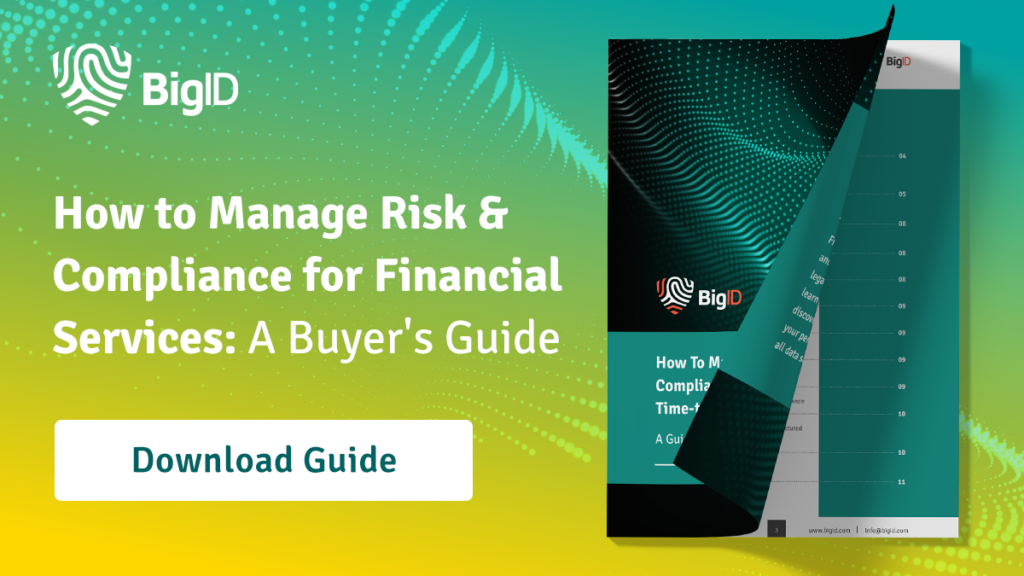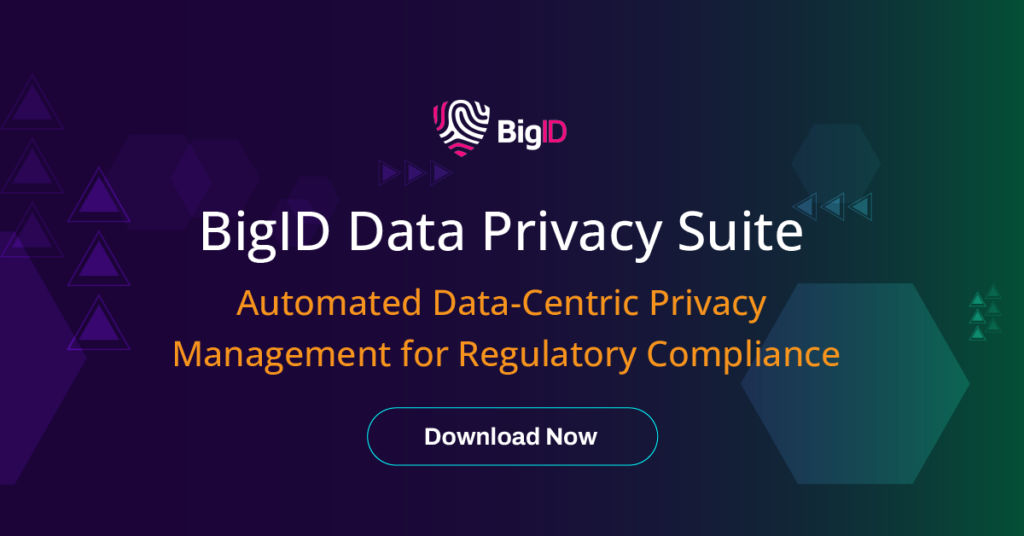Understanding FINRA: A Complete Overview
Safeguarding investor interests and upholding market integrity by understanding and adhering to FINRA regulations is paramount for financial organizations. Let’s explore the importance of compliance, uncover best practices, and navigate the ever-evolving landscape of securities regulation.
What is FINRA?
The Financial Industry Regulatory Authority (FINRA) is a self-regulatory organization (SRO) overseeing brokerage firms and exchange markets in the United States. Established in 2007, FINRA ensures the integrity of the financial markets, investor protection, and regulatory compliance within the securities industry.
Why is FINRA Important?
FINRA plays a crucial role in maintaining investor confidence by enforcing ethical standards and transparency. Through stringent regulations and thorough oversight, FINRA helps prevent fraudulent activities, promotes fair trading practices, and ensures that brokerage firms act in their clients’ best interests.
Ensuring Investor Protection
Investor protection is one of the primary reasons why FINRA is essential. By enforcing rules and regulations, FINRA aims to safeguard investors from fraudulent activities and unethical practices. This protection includes:
- Preventing Fraud: FINRA’s strict oversight helps to identify and prevent fraudulent schemes, such as Ponzi schemes and insider trading, which can harm investors and destabilize markets.
- Promoting Transparency: FINRA mandates that firms provide clear, accurate, and timely information to investors. This transparency helps investors make informed decisions about their investments.
- Resolving Disputes: FINRA offers arbitration and mediation services to resolve disputes between investors and brokerage firms, ensuring that investors have a fair avenue for recourse.
Maintaining Market Integrity
FINRA’s regulations and oversight help maintain the integrity of the financial markets. By enforcing rules that promote fair and honest trading practices, FINRA ensures that markets operate efficiently and transparently. Key aspects include:
- Monitoring Trading Practices: FINRA continuously monitors trading activities to detect and address manipulative practices such as wash trading and spoofing.
- Regulating Market Participants: By overseeing brokerage firms and their representatives, FINRA ensures that all market participants adhere to ethical standards and regulatory requirements.
- Enforcing Best Execution: FINRA requires firms to seek the best possible execution for their clients’ orders, ensuring that trades are conducted at the most favorable terms available.

Upholding Ethical Standards
FINRA’s role in upholding ethical standards within the financial industry cannot be overstated. Through its rules and enforcement actions, FINRA promotes a culture of integrity and accountability. This includes:
- Establishing Conduct Rules: Rules like FINRA Rule 2010 mandate that firms and their representatives conduct their business with high standards of commercial honor and just principles of trade.
- Disciplinary Actions: When violations occur, FINRA has the authority to impose sanctions, including fines, suspensions, and expulsions. These actions serve as a deterrent against unethical behavior.
- Continuous Education: FINRA requires ongoing education and training for registered representatives, ensuring they stay informed about regulatory changes and ethical standards.
Enhancing Investor Confidence
A critical outcome of FINRA’s work is the enhancement of investor confidence. When investors trust that the markets are fair and that their interests are protected, they are more likely to participate in the financial markets. This confidence is bolstered by:
- Rigorous Oversight: FINRA’s comprehensive oversight instills trust in the system, assuring investors that there are robust mechanisms in place to detect and address misconduct.
- Transparent Processes: By promoting transparency and accountability, FINRA helps create an environment where investors feel secure in their investments.
- Effective Communication: FINRA provides resources and education to investors, helping them understand their rights and the regulatory landscape, further enhancing their confidence.
Supporting Market Stability
Market stability is another crucial area where FINRA’s role is vital. Stable financial markets are essential for economic growth and investor welfare. FINRA contributes to stability by:
- Monitoring Systemic Risks: FINRA identifies and mitigates systemic risks that could impact the broader financial system.
- Ensuring Capital Adequacy: By setting and enforcing capital requirements for brokerage firms, FINRA ensures that firms have the financial strength to withstand economic shocks.
- Promoting Fair Competition: FINRA’s regulations create a level playing field, ensuring that all firms compete fairly and that no single entity can unduly influence the market.
Facilitating Regulatory Compliance
Finally, FINRA plays a critical role in helping firms navigate and comply with the complex web of securities regulations. This support includes:
- Providing Guidance: FINRA offers guidance and resources to help firms understand and comply with regulations, reducing the risk of inadvertent violations.
- Conducting Examinations: Regular examinations and audits help identify compliance issues before they become significant problems, allowing firms to correct them proactively.
- Offering Training Programs: FINRA’s training programs help firms stay current with regulatory developments and best practices in compliance.

The Pillars of FINRA Regulations
Key FINRA Rules and Requirements
FINRA has established numerous rules to guide the behavior and operations of its member firms. Some of the key regulations include:
FINRA Rule 2010: Standards of Commercial Honor and Principles of Trade
Description: FINRA Rule 2010 requires members to conduct their business in accordance with high standards of commercial honor and just principles of trade. This foundational rule emphasizes ethical behavior and integrity in all dealings within the securities industry.
Implications:
- Members must avoid deceptive, dishonest, or unethical practices.
- Violations of Rule 2010 can lead to significant disciplinary actions, including fines, suspensions, or expulsions.
FINRA Rule 2210: Communications with the Public
Description: This rule governs how FINRA members communicate with the public, including advertisements, sales literature, and correspondence. The rule ensures that all public communications are fair, balanced, and not misleading.
Key Provisions:
- Approval and Recordkeeping: Certain communications must be approved by a registered principal before use and retained for three years from the date of last use.
- Content Standards: Communications must be clear, not misleading, and provide a balanced view of the risks and benefits of investments.
- Filing Requirements: Certain types of communications must be filed with FINRA for review.
FINRA Rule 3110: Supervision
Description: Rule 3110 requires firms to establish and maintain a system to supervise the activities of their associated persons to ensure compliance with applicable securities laws and regulations.
Key Elements:
- Written Supervisory Procedures (WSPs): Firms must develop and maintain WSPs that detail supervisory responsibilities and procedures.
- Supervisory Structure: Firms must designate qualified supervisors and ensure that they have the necessary authority and resources to perform their duties.
- Internal Inspections: Firms must conduct regular inspections of their offices to ensure compliance with supervisory procedures.
FINRA Rule 4511: General Requirements
Description: This rule outlines the general recordkeeping requirements for member firms. It mandates the maintenance of accurate books and records to ensure regulatory compliance and support the firm’s operations.
Key Requirements:
- Retention Period: Records must be kept for specific periods, typically three to six years, depending on the type of record.
- Accessibility: Records must be readily accessible for examination by FINRA and other regulatory bodies.
FINRA Rule 3210: Accounts at Other Broker-Dealers and Financial Institutions
Description: Rule 3210 addresses the handling of accounts held by associated persons at other broker-dealers or financial institutions. It aims to prevent conflicts of interest and ensure proper oversight of personal trading activities.
Key Provisions:
- Prior Notification: Associated persons must notify their employer and obtain approval before opening accounts at other financial institutions.
- Duplicate Statements: Employers must receive duplicate account statements and confirmations to monitor the associated persons’ trading activities.
FINRA Rule 4370: Business Continuity Plans and Emergency Contact Information
Description: This rule requires member firms to establish and maintain a written business continuity plan (BCP) to address emergencies or significant business disruptions.
Key Elements:
- Plan Components: The BCP must include procedures for data backup, financial and operational assessments, alternative communications, and regulatory reporting.
- Annual Review: Firms must review and update their BCPs at least annually to ensure effectiveness and compliance with regulatory requirements.
- Emergency Contact Information: Firms must provide FINRA with emergency contact information for key personnel.
FINRA Rule 5320: Prohibition Against Trading Ahead of Customer Orders
Description: Also known as the “Manning Rule,” this rule prohibits firms from trading for their own accounts ahead of customer orders, ensuring that customer orders receive priority.
Key Provisions:
- Order Handling: Firms must handle customer orders promptly and ensure they are executed before proprietary trades.
- Exceptions: Certain exceptions apply, such as for large orders or those involving institutional customers, provided specific conditions are met.
FINRA Rule 4530: Reporting Requirements
Description: Rule 4530 requires firms to report specific events to FINRA, such as disciplinary actions, regulatory actions, and customer complaints.
Key Reporting Obligations:
- Timeliness: Firms must report within specified timeframes, typically within 30 calendar days of learning of the event.
- Accuracy: Reports must be complete and accurate, providing all relevant details about the event.
FINRA Record Retention Rules
Description: These rules require firms to maintain detailed records of their business activities, communications, and transactions. This includes preserving emails, instant messages, and even social media interactions for a specified period.
FINRA Record Retention Rules Best Practices:
- Develop Comprehensive Policies: Establish clear policies outlining the types of records to be retained, the retention periods, and the methods of storage.
- Leverage Technology: Use FINRA client management software to automate recordkeeping processes and ensure compliance with retention requirements.
- Regular Audits: Conduct regular internal audits to verify that record retention practices align with FINRA rules and identify areas for improvement.
- Employee Training: Train employees on the importance of record retention and the specific requirements relevant to their roles.
By adhering to these key FINRA rules, firms can ensure compliance with regulatory standards, maintain the integrity of their operations, and protect the interests of their clients and the broader financial markets.
Who Regulates FINRA Compliance?
While FINRA operates independently, it is subject to oversight by the U.S. Securities and Exchange Commission (SEC). The SEC ensures that FINRA adheres to federal securities laws and operates in the public’s interest.
FINRA Stakeholders
FINRA compliance is essential for various stakeholders within the financial industry, including:
- Brokerage firms and their employees
- Investors and clients
- Regulators and policymakers
- Technology providers offering FINRA client management software
Common FINRA Violations
Examples of FINRA Violations
FINRA violations can vary widely, from minor infractions to significant breaches of ethical conduct. Some of the most common types of violations include:
Failure to Maintain Accurate Records
Description: Accurate recordkeeping is crucial for compliance with FINRA regulations. Firms are required to maintain detailed and precise records of all business activities, communications, and transactions. Failure to do so can lead to regulatory actions and penalties.
Impact: Inaccurate or incomplete records can hinder regulatory oversight, obscure fraudulent activities, and damage investor trust. This violation often results in fines and remediation orders.
Insider Trading
Description: Insider trading involves the buying or selling of securities based on material, non-public information. This practice is illegal and undermines market integrity by giving an unfair advantage to individuals with privileged information.
Impact: Insider trading can erode investor confidence and distort market prices. Violators face severe penalties, including fines, imprisonment, and bans from the securities industry.
Misleading Communications with Clients
Description: Firms must ensure that all communications with clients are fair, balanced, and not misleading. This includes advertisements, sales literature, and verbal or written statements.
Impact: Misleading communications can lead to investors making uninformed or harmful financial decisions. Violations in this area often result in substantial fines and reputational damage for the firm.
Inadequate Supervision of Representatives
Description: Firms are required to establish and maintain a system to supervise the activities of their associated persons. Inadequate supervision can lead to various forms of misconduct, including unauthorized trading and fraudulent activities.
Impact: Lack of proper supervision can result in significant financial losses for investors and damage to the firm’s reputation. Regulatory responses typically include fines, mandatory corrective actions, and increased scrutiny from regulators.
FINRA Case Studies
Case Study 1: Failure to Preserve Electronic Communications
Details: A brokerage firm was fined $2.9 million for failing to preserve electronic communications in accordance with FINRA record retention rules. The firm did not archive emails and instant messages properly, which is a violation of FINRA Rule 4511 and SEC Rule 17a-4 .
Implications: This case highlights the importance of maintaining accurate and complete records of all business communications. Firms must have robust systems in place to ensure compliance with record retention requirements, including the use of advanced technologies to archive and monitor electronic communications effectively.
Case Study 2: Unauthorized Trading and Ethical Violations
Details: A financial advisor was suspended and fined for violating FINRA Rule 2010 by engaging in unauthorized trading activities. The advisor conducted trades without the explicit consent of the clients, which constitutes a breach of fiduciary duty and ethical standards .
Implications: This case underscores the critical importance of ethical conduct and proper supervision within financial firms. Unauthorized trading not only breaches regulatory standards but also erodes client trust and can result in significant financial harm to clients. Firms must ensure that all representatives adhere to high ethical standards and that there are effective supervisory systems in place to detect and prevent such violations.
By understanding and addressing these common violations, firms can enhance their compliance programs, maintain the integrity of their operations, and protect their clients’ interests effectively.
Leveraging AI for FINRA Compliance
The Role of AI in Modern Compliance
Artificial Intelligence (AI) has revolutionized the way firms approach FINRA compliance. AI-powered tools enhance the efficiency and accuracy of compliance processes through:
- Automated Monitoring: AI systems can continuously monitor transactions and communications, flagging potential violations in real time.
- Advanced Analytics: Machine learning algorithms analyze vast amounts of data to detect patterns indicative of fraudulent activity or non-compliance.
- Enhanced Record Retention: AI ensures that all communications and transactions are properly archived, adhering to FINRA’s record retention rules.
Benefits of AI in FINRA Compliant Data Management
AI-driven solutions offer several advantages for managing FINRA compliant data:
- Efficiency: Reduces the manual workload associated with monitoring and record-keeping.
- Accuracy: Minimizes human error, ensuring that all data retention and reporting requirements are met.
- Proactive Compliance: Predictive analytics can identify potential compliance risks before they result in violations.
Best Practices for Achieving FINRA Compliance
Developing a Robust Compliance Program
To stay compliant with FINRA regulations, firms should adopt a comprehensive compliance program that includes:
- Regular Training: Ensure that all employees are well-versed in FINRA requirements and ethical standards.
- Effective Monitoring Systems: Implement AI-driven monitoring and reporting tools to track all transactions and communications.
- Proactive Audits: Conduct regular internal audits to identify and address potential compliance issues before they escalate.
Utilizing FINRA Client Management Software
Investing in advanced FINRA client management software can streamline compliance efforts by:
- Centralizing data management
- Automating record retention processes
- Providing real-time alerts for potential violations
Embracing the Future of FINRA Compliance
In the digital age, maintaining FINRA compliance requires a forward-thinking approach that leverages the latest technological advancements. By integrating AI and advanced software solutions, financial firms can enhance their compliance programs, ensuring they meet all FINRA requirements and uphold the highest standards of integrity. As regulations continue to evolve, staying proactive and adaptable will be key to navigating the complex landscape of FINRA compliance effectively.
BigID’s Approach to FINRA Compliance
BigID is the industry leading platform for data privacy, security, and AI data management offering a comprehensive solution for all your enterprise data, at scale. With advanced data discovery and classification capabilities, BigID enables organizations to automatically identify, classify, and tag sensitive data across diverse data sources, including both on-premises and cloud environments.
By leveraging machine learning (ML), natural language processing (NLP), and artificial intelligence (AI), BigID empowers CISOs to gain comprehensive visibility into their data landscape. This advanced technology helps them understand and prioritize where sensitive data resides, whether structured, semi-structured, unstructured, data at rest, or data in motion.
With BigID, organizations can:
- Automatically identify and classify sensitive data: BigID’s sophisticated algorithms detect and categorize sensitive information across various data sources.
- Achieve comprehensive data visibility: Gain a holistic view of the data landscape to understand where sensitive data is located.
- Prioritize data protection efforts: Focus on securing the most critical data first by knowing exactly where it resides.
- Ensure compliance: Simplify the process of meeting data privacy regulations like FINRA by maintaining strong data governance practices.
To get more visibility and control over your organization’s data for easier compliance with regulations like FINRA— schedule a 1:1 demo with our experts today.


